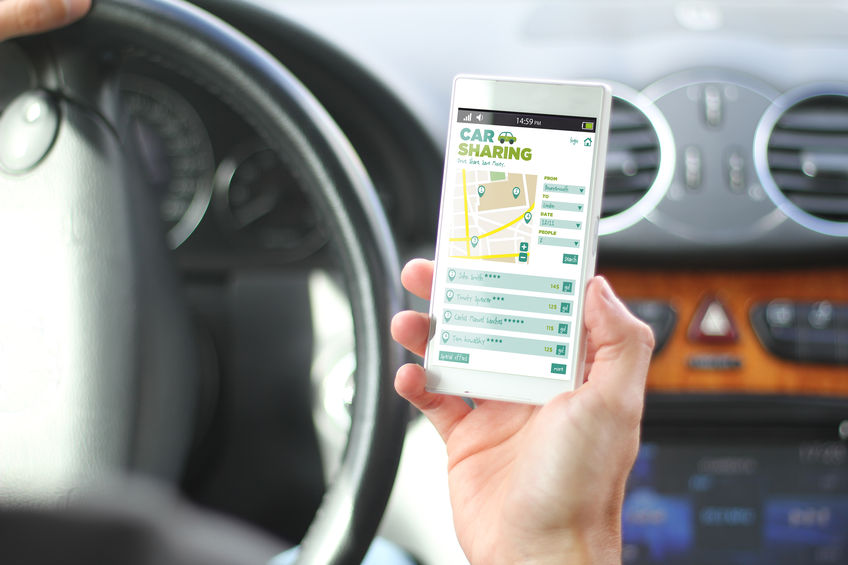THERE’S AN APP FOR THAT, AND A TAX WILL FIND IT
House Bill 102 would give the Alaska Department of Revenue the power to collect taxes on car-sharing activities, which would turn peer-to-peer deals into the same taxable transaction as car rental companies such as Hertz, Avis, or Rent-a-Wreck.
Car rental companies in Alaska collect an extra 10 percent from customers and then remit that to the State of Alaska as tax. Those companies don’t want individuals to be able to “rent” their cars from just anybody without also paying that tax.
Peer-to-peer car sharing is a technology-based and free market is a free market innovation that allows people who have cars to share them for an hour, for a day, or longer to those who don’t have cars.
Or perhaps share is not the right word. Those who want to tax the transactions say that if you’re sharing something, you wouldn’t charge for it. There’s the rub.
Car sharing is different from ride-sharing like Uber or Lyft, in that the person using the car of another person is driving it themselves, rather than being driven by the car owner. The car-sharing is facilitated by companies like Turo or Getaround, which ensure that things like proper licensing and insurance are handled. It’s also a place where complaints are resolved.
Typically, peer-to-peer car sharing is a membership-based service that provides members a way of making a few bucks off of their assets that may be sitting in the driveway most of the time, in the same way that Airbnb.com allows people to rent their homes or rooms within their homes.
Rep. Adam Wool, sponsor of HB 102, wants to tax those peer-to-peer transactions, and during the House Labor and Commerce Committee on Monday, he and his fellow Democrats peppered the Turo company representative with questions about what constitutes a “shared” vehicle versus what is actually just a rental with a nifty app. It was clear the Democrats don’t like this activity that flies under the tax radar.
Rep. Zack Fields was particularly argumentative with Turo, to the point of badgering company representative Ethan Wilson, who was asking the committee to simply do more work on HB 102.
Turo has members who are active in Alaska in Juneau, Anchorage, Fairbanks, and Ketchikan. The cars, while perhaps conveniently located in neighborhoods, are not necessarily cheaper options than commercial rentals. A search in Anchorage found the cheapest Turo vehicle available for $28 a day, while a car could be rented from a traditional car rental agency for $11, during the time parameter searched.
Those using the peer-to-peer service pay 25 percent of the transaction to the Turo company, which has its headquarters in tax-happy San Francisco.
Nevertheless, Turo is arguing that people wanting to share their cars shouldn’t have to pay the state a tax.
Other innovative car companies, like Zipcar and GIGcar have different models of operation that could also make their way to Alaska in the months and years ahead. Zipcar allows hourly access to shared vehicles from a dedicated base location, and the car must be returned to that location, while GIGcar allows cars to be dropped off in various places in a “home zone.”
Legislation allowing Uber and Lyft, which are peer-to-peer ridesharing companies that allow people with cars to chauffeur others around, encountered major resistance from taxi companies when it was being debated in 2017. It passed the Legislature and was signed into law by former Gov. Walker.
[Read: Ridesharing passes Legislature]
SHOULD THESE TRANSACTIONS BE TAXED?
Some states and local governments categorize car sharing as rentals and tax them accordingly. Even if a car is used for a short trip, such as an hour, they may be taxed at the daily rate.
Colorado exempts car sharing from the daily car rental fee because the Legislature there has viewed the innovation as a way to reduce the number of miles traveled on the highways. People who don’t own cars are reducing traffic congestion, the logic reasons, and therefore there is less greenhouse gas and wear and tear on roads. If Coloradans need a car now and then, the State of Colorado wants to make that an easier option for them.
But in Hawaii, the legislature enacted a bill that taxes car-sharing at 25 cents per half hour, up to a maximum of $3 a day, the same that rental companies are remitting for their transactions. The legislation was to create parity with rental car companies in a state that has heavy tourism interests.
Florida reduced the tax for car sharing from $2 to $1 per use, if for less than 24 hours.
The province of Quebec requires Turo to collect Quebec Sales Tax from hosts for all trips taken in all vehicles listed in Quebec. The tax is about 10 percent.
Other states are struggling with how to skim taxes off such transactions. But it’s problematic. Income earned by sharing your car is taxable by the Internal Revenue Service, so anything car hosts earn will already pay an average of 28 percent or so in taxes.
If car hosts have to pay another 10 percent to the State of Alaska, it could kill the prospects of this leading-edge peer-to-peer service in Alaska, with a 38 percent effective tax rate, plus having to pay for the extra wear and tear on one’s vehicle.
